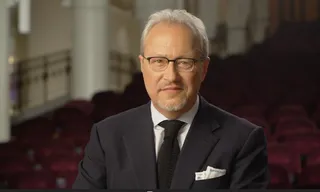
Healthcare providers urged to use captives to fill the gaps in commercial cover
Healthcare providers should be using their captives to fill in the gaps that have been exposed by the COVID-19 pandemic, ensuring they have more comprehensive coverage going forward, according to Michael Maglaras, principal of Michael Maglaras & Company.
Many healthcare facilities have learned in recent weeks that their business interruption claims, caused by the COVID-19 crisis, may be difficult to collect on, in the absence of physical loss or damage to property, explained Maglaras.
The COVID-19 pandemic is causing significant losses of revenues for many healthcare providers, as they are mandated to reallocate resources to dealing with the outbreak, at the expense of ambulatory and elective surgery revenue.
However, property policies written for health care institutions frequently contain broad limitations on business interruption coverage caused by the cascading effect of dealing with the coronavirus, he said.
Maglaras believes captives should be reviewing their coverage to ensure healthcare practitioners have some protection from losses incurred in the coming months of the crisis.
Maglaras said: “If you take a cross section of your typical commercial property insurance policy, it looks a bit like a Swiss cheese, with sub-limits, co-insurances, and related coverage gaps. Captives have been used for decades to fill gaps and supplement commercial coverage, providing that the captive in question has sufficient surplus capital, and providing a captive’s regulator will permit extensions of coverage.”
He advised healthcare providers to determine the amount of commercial property business interruption and time element coverage that may be available for decontamination costs, communicable disease cleanup, and interruption by communicable disease.
“There is no reason captives should structure their business or their policies in a way that completely reflects their underwriting structures as if they were commercial insurance providers,” Maglaras said. “The typical workers’ compensation deductible reimbursement agreement, which is in common use among captives, looks almost nothing like an admitted commercial insurer’s workers’ compensation policy. And there is no reason why it should. Captives have been manuscripting their own coverage since the first US captive was formed in 1836.”
Even claims tied directly to business interruption by civil authority can use supplementary coverage sources to partially pay business interruption losses, Maglaras added, provided that these additional balance sheet liabilities do not compromise reasonable ratios of existing equity to long-term liabilities.
Maglaras also said the crisis has exposed the disadvantage of maintaining a captive offshore. With all leading US domiciles allowing tax exempt companies to operate in their states, he argued US healthcare providers and others should consider repatriating their captives to the US.
"If you are a US tax-exempt health care provider, there is no reason anymore to have your captive domiciled outside of the US,” said Maglaras. “US captive domiciles permit the formation not only of tax-exempt corporations, but also of limited liability companies, where captives can be warehoused domestically.”
He concluded: “In 2020, the optics associated with the board of a tax-exempt health care institution needing to travel outside the US to hold a business meeting is just an invitation to make the evening news.”

